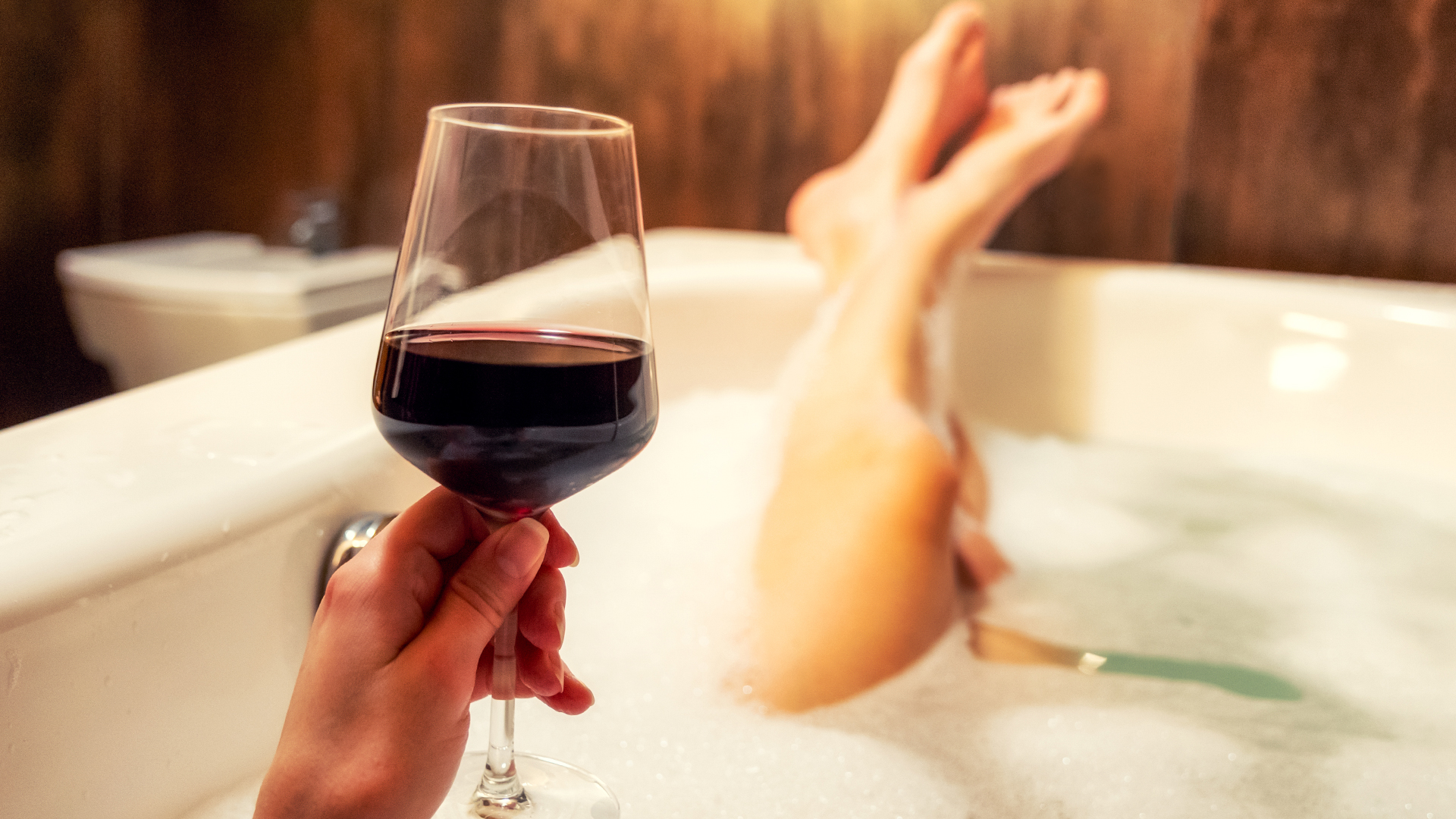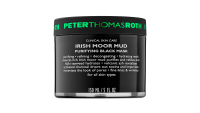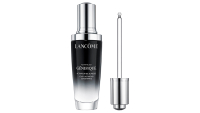What alcohol really does to your face
You guessed it, the effects of alcohol on your face aren't pretty.

When you're sinking a pinot grigio, the last thing you're thinking about is the effects of alcohol on your face. But with the festive season upon on us, and Buck's Fizz in the morning followed by prosecco with lunch and mulled wine in the afternoon, it's worth taking stock. Because, frankly, alcohol isn't great news if you don't want your face to resemble a deflated party balloon.
How is alcohol bad for your skin?
Ask a dermatologist if alcohol is bad for the skin and they're likely to tell you it's one of the worst things you can do. Meaning it's up there with UV rays and pollution. Why? Because it's a supreme skin ager. Brace yourselves...
1. Dehydration
Despite slathering yourself in the best moisturisers for dry skin, your face is naturally more dehydrated at this time of year thanks to a lack of humidity in the air. So add in alcohol and it's a recipe for flakiness and dehydration lines.
"Alcohol is a diuretic and suppresses the production of vasopressin, a hormone that helps maintain the water balance in your skin and body," explains Dr Anjali Mahto, consultant dermatologist at the Cadogen Clinic in London.
2. Dullness
The ageing effects don't end there, either. "Drinking alcohol regularly has the potential to reduce vitamin A in the body, a key nutrient for cell renewal," adds Mahto. So with more dead skin cells clinging to the surface of your skin, it is devoid of a youthful glow.
Sign up to our free daily email for the latest royal and entertainment news, interesting opinion, expert advice on styling and beauty trends, and no-nonsense guides to the health and wellness questions you want answered.
3. Breakouts
The obvious overload of toxins on the liver and sugar-induced insulin spikes can cause breakouts and increased oil production. If you're staying up late drinking, a lack of sleep can also mean that cortisol levels go up - a prime trigger for acne.
4. Rosacea
"Finally, alcohol causes blood vessels to enlarge, leaving skin flushed and feeling sensitive," says Mahto. This is particularly problematic if you are already prone to rosacea and over time can lead to permanent thread veins.
The worst culprits
High levels of sugar in your bloodstream can cause inflammation and exacerbate conditions such as eczema, acne and rosacea. The sweet stuff also breaks down collagen and elastin through a process known as glycation. This chemical reaction causes sugar to permanently bind itself to proteins, including the collagen in the skin. This makes its surface more stiff and inflexible, which in turn leads to skin that is tougher and more wrinkled.
So cocktails are public enemy number one as they contain syrups and fruit juices, which are high in sugar. Some, like margaritas, also use salt, which causes water retention.
Red wine is probably the least harmful to you as it contains resveratrol, an antioxidant derived from grapes , which protects the skin from ageing free radicals. That said, if rosacea is an issue, steer clear - red wine also releases histamine, which causes redness and flushing.
Ultimately, a good pro-skin strategy is to alternate a glass of alcohol with a glass of water in order to still hydrate the body's tissues and skin.
How to give hungover skin a boost
A urine test can still detect alcohol between 12 and 48 hours after drinking, which gives you an indication of how long it takes your body to flush it out. At which point, your skin will also be out of whack.
It's wise, therefore, to invest in a deep cleansing product that hoovers up impurities. Activated charcoal is your go-to here as it is extremely porous and this allows it to bind to and absorb oil and debris. Bentonite clay is another mattifying ingredient if your oil-production has gone into overdrive. Peter Thomas Roth Moor Irish Mud Mask contains both.
When it comes to moisturising your skin, proceed with caution. While overloading your skin with a heavy moisturiser isn't the answer (it can suffocate skin and stop it hydrating itself naturally), investing in a product rich in probiotics might be.
Alcohol can disrupt the skin's microbiome - the surface of your skin, which is home to more than one trillion bacteria that protect against environmental damage and keeps a low pH to avoid irritation. To restore balance, the approach Lancome has taken with its best-selling Advanced Genifique Youth Activating Concentrate is to feed the bacteria you already have with broken down peptides and sugar from the cells walls.
So there is, at least, a silver lining.
Fiona Embleton is an award-winning beauty director with over 15 years of industry experience and has held staff positions on Stylist, Marie Claire, Cosmopolitan and Glamour. She covers all aspects of the beauty industry and specialises in long-read features, fragrance and skincare.

